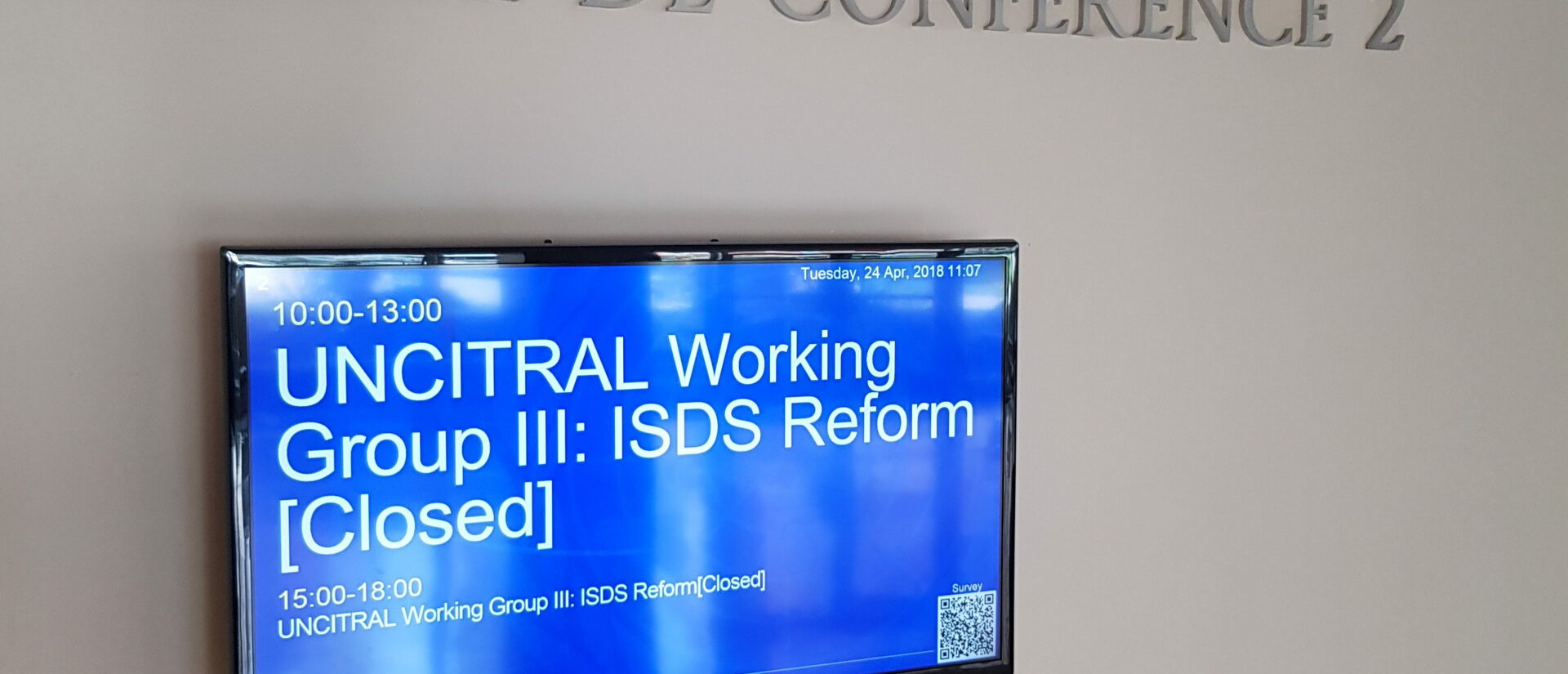
ISDS reform: The need for a substantive overhaul to investment protection
Between 23 and 27 April 2018, members of Working Group III of the United Nations Commission on International Trade Law (UNCITRAL) came together in New York to discuss a possible reform of the investor-to-state dispute settlement procedure (ISDS). At the meeting, the Working Group continued to identify concerns regarding ISDS, considered whether reform is desirable, and, developed possible solutions and recommendations.
Substantial reforms needed
The current UNCITRAL agenda (opens in new window) remains limited to procedural reforms, a clear sign that the members of the Working Group are mainly concerned with issues such as efficiency, cost reduction, accessibility, and predictability in investment arbitration, and thus with further enhancing and legitimizing ISDS. One of the most advanced proposals on the table is the European Commission’s plan to create a Multilateral Investment Court. The discussions at UNCITRAL hence tend to overlook the elephant in the room, that is, the overriding need for not simply a procedural reform, but a substantial overhaul of the current system for investment protection.
Corporate privilege
The system currently provides exclusive access to international arbitration for foreign investors only, and focuses solely on their rights and privileges under investment treaties. There are no corresponding binding social and environmental obligations that investors must adhere to. Neither are states—as the guardians of the public interest, individuals and communities—entitled to comparable access to remedy.
Recommendations for reforms
At the same time, the work of the UNCITRAL Working Group III provides a unique opportunity to tackle some of the most pressing issues with regard to investment protection. The mandate of the working group is broad, and allows for a wide range of possible solutions. In a recent briefing paper, SOMO, CIEL, ClientEarth and Transport & Environment presented several reform options aimed at supporting a broad discussion on potential solutions within the Working Group. The document highlights the many and diverse ways in which the widely acknowledged problems of ISDS could be addressed. These include:
- a multilateral approach to terminating investment treaties and/or withdrawing consent to ISDS procedures;
- allowing states to bring counter-claims on the basis of international human rights obligations and environmental duties for foreign investors;
- protecting the states’ right and duty to regulate in the public interest by dismissing claims against legitimate, non-discriminatory, and lawful decisions to protect the public interest;
- denying access to ISDS for investors that violate domestic or international obligations;
- requiring investors to exhaust local remedies before challenging a state directly in an ISDS tribunal;
- allowing affected third parties to join a case with full rights, on equal grounds with the main parties to the dispute.
We find ourselves at a crossroad, a point where fundamental reform is possible, and where governments bear the moral responsibility to play their part in designing a system that is consistent with combating social inequality, environmental degradation and climate change as the main challenges of our time. Any reform constrained to procedural aspects will not suffice. For 50 years, the global investment regime enforceable through ISDS has promoted international investment flows and solely protected the rights of foreign investors. Now is the time to move towards a system aimed instead at regulating companies that operate trans-nationally so that their activities serve the public interest. To build a comprehensive and enforceable governance framework for transnational corporations in order to protect the world’s peoples and the future of our planet.
Interesting to read: Same old, same old: the EU pushes ISDS 2.0
Do you need more information?
-

Bart-Jaap Verbeek
Researcher








